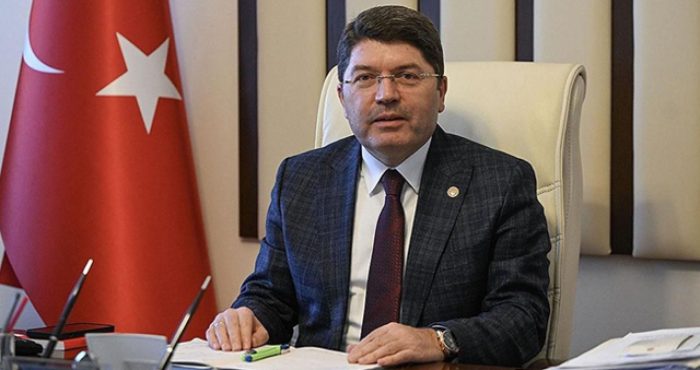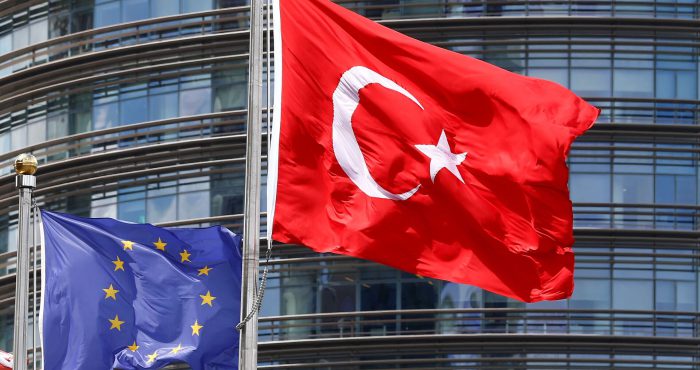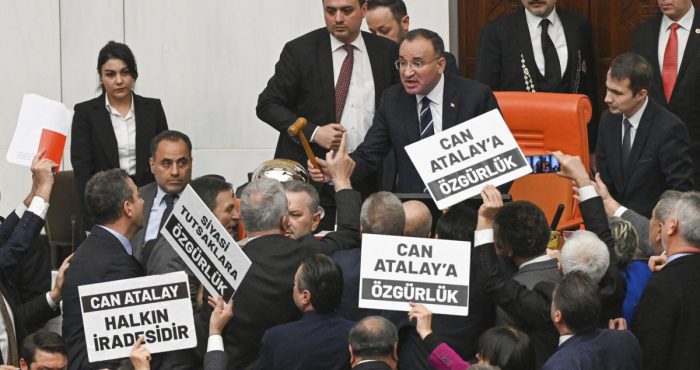This Saturday morning, while we were planning to peacefully sit at our breakfast table, we jumped out of our beds with two surprising presidential decrees that concern us all very closely, one was about the dismissal of Turkey’s central bank governor, Mr. Ağbal other one was about the withdrawal from the Istanbul Convention. I had woken up to a tweet by an international journalist, whose piece on Mr. Ağbal’s policy and efforts to stabilise prices was published on the Economist on the day he was replaced. The tweet read: “It is very difficult to be a journalist who follows current developments in Turkey!”. Then, as if this were not enough of a shock, I learned about the President’s decision to withdraw from the Istanbul Convention.
A Country Cannot Terminate but Rather Withdraw from A Convention
The presidential decree states “Turkey terminates the Council of Europe’s Istanbul Convention“. The term “terminate” indicates that the decree was prepared with a very poor legal knowledge. Because a country cannot terminate a multiparty international convention but withdraw from one.
There is a procedure to withdraw. First the will of the country to withdraw is established according to its internal law; then such resolution of the country is notified by its authorised representative, as stipulated in the convention.
The President Does Not Have the Authority to Withdraw Turkey from the Istanbul Convention.
The President does not have the authority to withdraw Turkey from the Istanbul Convention, nor he can “terminate” it as purported in the presidential decree. Neither the Turkish Constitution nor the Law No.244, authorises the president to withdraw from the Istanbul Convention. According to the Turkish Constitution it is not possible to empower the president with such an authority.
Article 104 of the Constitution and article 5 of Law No.244, only empowers the President to “approve and participate” in international agreements. Presidential Decree No. 9 issued pursuant to Article 5 of the Law 244 regulates the president’s duties to determined and announce implementation formalities and dates for international conventions.
The Istanbul Convention Is A Parliamentary Act, And Cannot Be Repealed by The President.
According to article 87 of the Constitution, the Grand National Assembly of Turkey (“TGNA”) has the authority to ratify international agreements. TGNA has ratified the Istanbul Convention on 24 October 2011 with the Law No.6251. With TGNA’s enactment the Istanbul Convention became a domestic law pursuant to article 90 of the Constitution.
The President, on its own, cannot repeal a domestic law, therefore cannot withdraw Turkey from a ratified international convention.
Turkey may withdraw from the Istanbul Convention, only if TGNA adopts a new act to repeal the previously enacted law. As it carries the nature of a parliamentary act the Istanbul Convention cannot be repealed by a presidential decree. The President may, commence a motion within the TGNA to repeal the law but cannot repeal the law on his own.
The Legality of The President’s Decision Regarding the Turkey’s Central Bank Are Controversial.
On the other hand, the removal of the governor of Turkey’s central bank is also legally problematic. According to its constitution the Central Bank is independent. However, the presidency broadly interprets the term “public officials” to include the governor and sees it within the scope of his authority to appoint and dismiss central bank governors. This broad interpretation is ambiguous and controversial among jurists.
Turkey’s central bank is independent according to the law constituting it and should remain independent. Since the central banks are the only institutions that the entire world agrees that politics should stay away from and since Turkey’s central bank is the only institution ensures public confidence in economy and protect the value of our savings and national currency; its independence interests us all. It is no longer even a matter of discussion that short-term and controversial decisions about the Turkey’s central bank are not prudent but they damage the economy; and deteriorate legal and economic certainty.
Therefore, from both economical and legal perspective, the President should not and cannot dismiss the central bank governors.
Because, neither the removed governors nor civilians have brought action the judiciary have not had a chance to review the legality of these decrees. Therefore the ambiguity stays and the controversy remains unresolved.
The President Has A Responsibility to Lead the Country in Manner That Ensures Stability
Another point is the principle for “Stable Governance” which should be taken into consideration in the decrees per article 64 of the Constitution. According to article 8 and 10, the President is bound to obey the law while administering the executive. This means that the President’s decisions and actions must not be subjective instead must be objective and scientific.
The President’s decision to withdraw Turkey from the Istanbul Convention even though he does not have the authority to do so, his controversial acceptance of Turkey’s central bank’s independence, his dismissal of the governors of the central bank which is an institution responsible for ensuring monetary stability in short intervals, interest and inflation rate policies that are not fully explained or clarified even in terms of religious philosophy and that do not correspond to the current economic order and all the contradictory decisions adopted by the President: these undoubtedly violates the principle of “stability” regulated under article 64 of the Constitution. Instability in the executive and economic management of the state, and unstable economic policies and decisions are not beneficial to our country and people.
For all the reasons explained above, it is my opinion that the presidential decrees purporting to withdraw Turkey from the Istanbul Convention and the removal of Turkey’s central bank governor are against the law. And this situation must be resolved in accordance with the law which can only be possible if the judiciary does its part. For the judiciary to fulfil its checks and balance function in the state, the affected persons and the civilians should appeal against these decisions before the courts of law.
Under these unfortunate circumstances, I wish you all peace.




